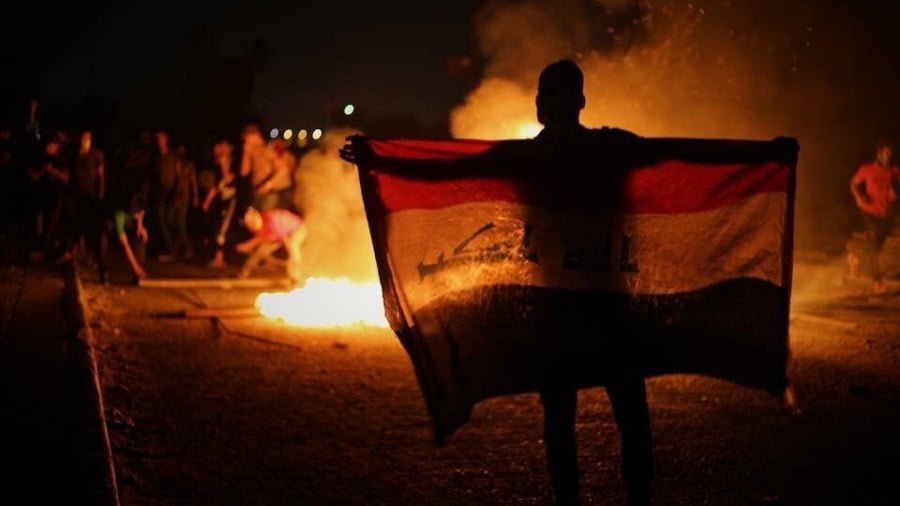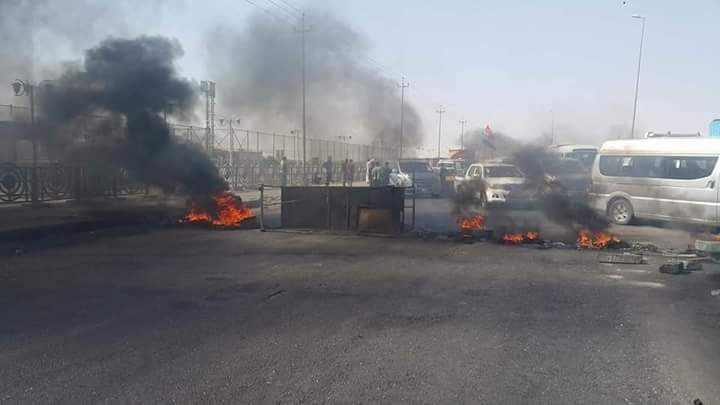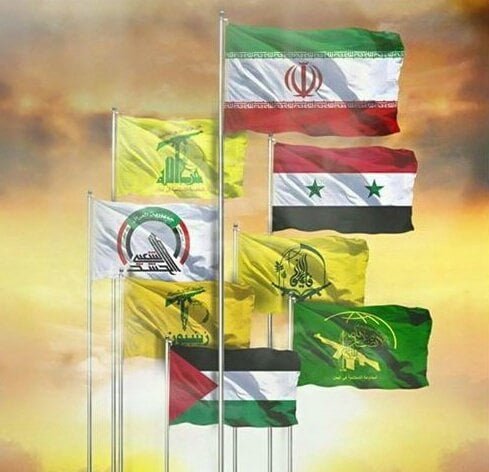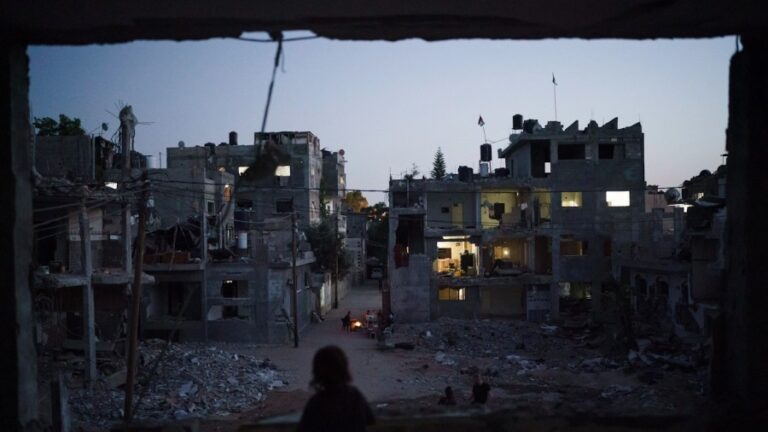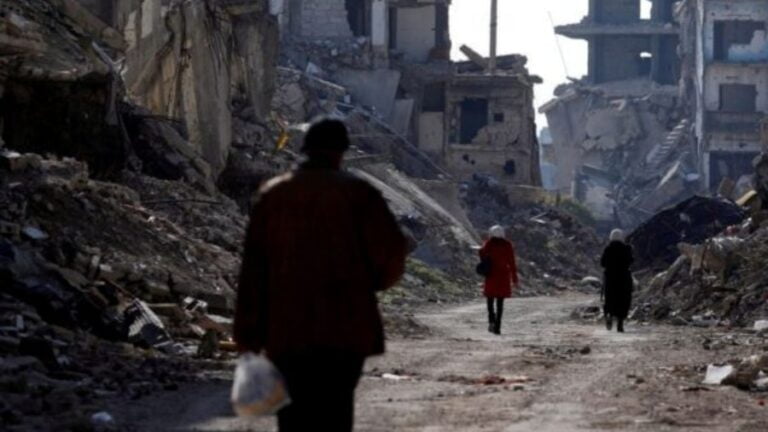The USA Oblivious to the Rise of a Resistance Movement in Response to Its Interference in Iraqi Elections
While domestic US politics are dominated by stories of foreign interference in US elections, the US government seems oblivious that its open efforts to control the politics of Iraq may be fostering a genuine resistance movement with dire consequences for the United States.
A new wave of violent demonstrations is taking place in the southern oil-rich city of Basra after 6 civilian demonstrators were killed and over 65 wounded by local forces. These Basrawis are asking for drinkable water, electricity, jobs and basic city infrastructure, all of which are lacking due to the rampant corruption and incompetence of decision makers and leaders. These demonstrations contribute to the embarrassment of the current government led by the interim prime minister Haidar Abadi, the US man in power in Iraq.
These demonstrations are not unrelated to the arm wrestling between the US and Iran over the identity of the new ruler of Mesopotamia. Indeed, a group of Iraqi parties have made a clear threat against “the US, the UK and Iraqi politicians if they continue interfering in the political process”, specifically in the election of the new government and its leaders. It is the beginning of the rise of a resistance movement against the US, to which the US establishment seems oblivious. Some local Iraqis don’t exclude that a 2018 revolution is starting in Basra against the US and their allies in the government, similar to the 1920 Great Revolution that started in Baghdad against the British.
When in 2003 US forces declared their occupation of Iraq, many in the country believed they were ending a horrible era under Saddam Hussein and starting a new future with the US presence. At first, the majority of Iraqis stood by US and British control of Iraq; with time a patriotic resistance to foreign occupation developed, embarrassing those who supported the US-British presence in the country. Nevertheless, this resistance turned against its own people and became a sectarian war run by a bloodthirsty Abu Musab al-Zarqawi, killing mainly Shia but without excluding Sunni, secular Kurds and other minorities. He aimed for a Sunni-Shia war despite the warning against this he received from his Emir Usama Bin Laden through his second in command Ayman al-Zawahiri. Zarqawi ignored his Emir’s warning and managed to provoke a bloody Shia reaction against the Sunni, created a sectarian war and divide in Iraq in only a couple of years, exceeding that fostered by Saddam Hussein in his 23 years of ruling.
A few years later, the Shia started their own resistance against the occupation forces, supported and financed by Iran. They carried out many attacks against the occupation forces (the most shocking was the Asaeb Ahl Al-Haq daylight attack in Karbala killing one US Marine and abducting 4 soldiers and officers from the municipality where they were based; the hostages were later killed) but this movement became inactive after the withdrawal of the US and the British forces from the country in 2011.
With the rise of ISIS and its occupation of Mosul and a third of Iraq in 2014, the Shia resistance supported al-Hashd al-Shaabi, the Popular Mobilisation Forces, in response to the call of the Grand Ayatollah Sayyed Ali Sistani. All together with the re-organised Iraqi army and federal police managed to defeat ISIS, without putting an end to its earlier guerrilla form of insurgency as it existed prior to 2014.
Many joined the official regular forces but many others returned to their political parties and kept their independence. These fighters today have a new reason to take up the arms and fight a new war against US forces or those who represent these forces.
Indeed, Asaeb Ahl al-Haq, the BADR organisation, Kataeb Hizballah Iraq, Harakat al-Jihad wal Bina’, Kataeb Sayyed al-Shuhada’, Harakat al-Nujabaa, Jund al-Imam and other groups are “warning the US and the UK to stop interfering in local affairs”.
“There is a new dirty conspiracy revealing itself where the US, the UK and Iraqi politicians are overtly working to create a weak government. This conspiracy is led by Brett McGurk (the US envoy to Iraq) and Thamer al-Sabhan (the ex-Saudi Ambassador to Iraq and actual Minister). We have the power to intervene at the right moment to disarm this conspiracy as we are today stronger than ever. Our aim is to protect the interests of our people and keep the political process democratic and free from any interference”, reads the communiqué.
These groups are asking “the Da’wa party to put an end to the irresponsible behaviour of some of its leader (Haidar Abadi)” and demand that Sayyed Moqtada al-Sadr “ stands against this filthy conspiracy and against the illegal presence of the foreign forces (US) in Iraq”.
The city of Basra contains 70 percent of Iraq’s oil reserves and is led by local tribesmen and activists who have asked the government on several past occasions to support the province and address the root causes of this crisis. Abadi visited Basra last July and made several promises to release enough funds to meet local demands, without any visible results.
Iran stopped supplying Basra with electricity after it claimed $1.5 billion in unpaid bills. Nevertheless, it has resumed the supply of electricity to Basra and other southern provinces following a direct order from Sayyed Ali Khamenei.
The Iranian influence in Iraq, including Basra, is not to be ignored. Over 150 MPs voted against the US candidate Haidar Abadi who did not enjoy the support of any province in Iraq, and his own coalition is reduced (now 14 MPs, out of 42 before the departure of Faleh al-Fayyad from his coalition) to a smaller size than the grouping of Sayyed Ammar al-Hakim (19 MPs).
If the US still believes it can impose its own candidate, it must reckon with the first signs of a resistance–prepared to hit not only US forces but also their Iraqi allies. The question remains: Is the US ready for another uprising against its forces in Iraq?

